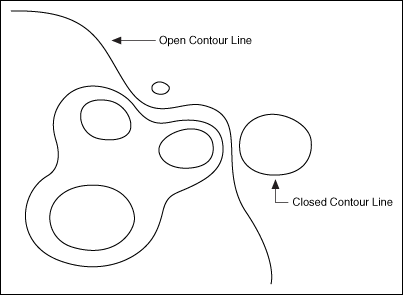 |
X specifies the x-coordinates of the surface.
If X is not empty, the length of X must equal the number of columns in Z. If X is empty, this VI gives X values of [0, 1, �, N – 1], where N is the number of columns in Z.
|
 |
Y specifies the y-coordinates of the surface.
If Y is not empty, the length of Y must equal the number of rows in Z. If Y is empty, this VI gives Y values of [0, 1, �, M – 1], where M is the number of rows in Z.
|
 |
Z is the 2D array that specifies values of the surface.
|
 |
number of heights specifies the number of contour lines the VI calculates. The default is 10.
|
 |
Contour Graph returns an XY graph that draws the contour lines.
|
 |
Contour Line returns an array of the contour lines. Each element of the array contains the contour lines for each height.
 |
height returns the height of the contour line.
|
 |
Contour Segments returns an array of the contour lines at height.
 |
X returns the x-coordinates of the contour line.
|
 |
Y returns the y-coordinates of the contour line. The first point to form at (X, Y) is different from the last point.
|
 |
closed? indicates that all points form a closed contour line if TRUE. If FALSE, the contour line is open.
|
|
|
 |
error returns any error or warning from the VI. You can wire error to the Error Cluster From Error Code VI to convert the error code or warning into an error cluster.
|
 |
X specifies the x-coordinates of the surface.
If X is not empty, the length of X must equal the number of columns in Z. If X is empty, this VI gives X values of [0, 1, �, N – 1], where N is the number of columns in Z.
|
 |
Y specifies the y-coordinates of the surface.
If Y is not empty, the length of Y must equal the number of rows in Z. If Y is empty, this VI gives Y values of [0, 1, �, M – 1], where M is the number of rows in Z.
|
 |
Z is the 2D array that specifies values of the surface.
|
 |
height specifies the height where the VI calculates the contour line.
|
 |
Contour Graph returns an XY graph that draws the contour lines.
|
 |
Contour Line returns the contour line at height.
 |
height returns the height of the contour line.
|
 |
Contour Segments returns an array of the contour lines at height.
 |
X returns the x-coordinates of the contour line.
|
 |
Y returns the y-coordinates of the contour line. The first point to form at (X, Y) is different from the last point.
|
 |
closed? indicates that all points form a closed contour line if TRUE. If FALSE, the contour line is open.
|
|
|
 |
error returns any error or warning from the VI. You can wire error to the Error Cluster From Error Code VI to convert the error code or warning into an error cluster.
|
 |
X specifies the x-coordinates of the surface.
If X is not empty, the length of X must equal the number of columns in Z. If X is empty, this VI gives X values of [0, 1, �, N – 1], where N is the number of columns in Z.
|
 |
Y specifies the y-coordinates of the surface.
If Y is not empty, the length of Y must equal the number of rows in Z. If Y is empty, this VI gives Y values of [0, 1, �, M – 1], where M is the number of rows in Z.
|
 |
Z is the 2D array that specifies values of the surface.
|
 |
Heights specifies an array of heights where the VI calculates the contour line.
|
 |
Contour Graph returns an XY graph that draws the contour lines.
|
 |
Contour Line returns an array of the contour lines. Each element of the array contains the contour lines for each height.
 |
height returns the height of the contour line.
|
 |
Contour Segments returns an array of the contour lines at height.
 |
X returns the x-coordinates of the contour line.
|
 |
Y returns the y-coordinates of the contour line. The first point to form at (X, Y) is different from the last point.
|
 |
closed? indicates that all points form a closed contour line if TRUE. If FALSE, the contour line is open.
|
|
|
 |
error returns any error or warning from the VI. You can wire error to the Error Cluster From Error Code VI to convert the error code or warning into an error cluster.
|
Contour lines of a surface are line segments that connect points at the same height, as shown in the following equation.
The following image provides an example of an open contour line and a closed contour line.
 Add to the block diagram
Add to the block diagram Find on the palette
Find on the palette













